What should I do if I get a traffic ticket?
It’s an almost inevitable rite of passage for nearly every driver: seeing those flashing lights in your rearview mirror, followed by the sinking feeling of receiving a traffic ticket. Whether it's for speeding, a forgotten turn signal, or a rolling stop, getting pulled over can be stressful and confusing. But what you do in the moments and days following that encounter can significantly impact your wallet, your driving record, and even your peace of mind.
Many drivers simply pay the fine, unaware that they might have other options or that a ticket could have long-term consequences they hadn't considered. Understanding the proper steps to take can save you money, prevent points from accumulating on your license, and potentially help you avoid harsher court penalties or insurance premium hikes.
This article will serve as your practical, step-by-step guide on what to do if you get a traffic ticket. From the moment you're pulled over and receive the citation, to understanding your options for resolving or even contesting the violation, we'll walk you through everything you need to know to handle the situation responsibly and effectively.
What Should You Do Immediately After Getting a Traffic Ticket?
The moments right after you receive a traffic ticket are crucial. Your actions here can set the stage for how you'll deal with the ticket moving forward.
Remain Calm, Polite, and Cooperative: This advice starts before the ticket is even issued. When pulled over, slow down, pull over safely, and turn on your hazard lights. Keep your hands visible (on the steering wheel) and wait for the officer to approach. Provide your license, registration, and proof of insurance calmly. Avoid arguing or becoming confrontational, as this will not help your situation. Even if you disagree with the officer, express your concerns respectfully or save them for court.
Review the Ticket for Accuracy: Once the officer hands you the ticket, take a moment to read it carefully. Check for the following details:
Your Name and Address: Ensure they are spelled correctly.
Date, Time, and Location: Are these accurate? A significant discrepancy in location could be a point of contestation.
Violation Type: Is the specific violation (e.g., 'speeding,' 'failure to stop') correctly listed?
Officer's Signature and Badge Number: These should be present.
Court Date/Information: Note down when and where you need to respond or appear.An error on the ticket doesn't guarantee dismissal, but it can be a valid defense in some cases.
Document the Situation: If you believe there are circumstances that could help your case, start documenting them immediately after the stop, or as soon as it's safe to do so.
Take Notes: Jot down everything you remember about the stop: the time, weather conditions, road conditions (e.g., potholes, overgrown signs), traffic volume, any specific statements made by the officer, and your perceived speed.
Take Photos: If relevant, use your phone to photograph the area where you were stopped. This could include unclear or obstructed traffic signs, faded road markings, poor visibility, or any other details that support your narrative.
Understand Your Options: Most traffic tickets offer a few basic ways to proceed. The ticket itself usually outlines these:
Pay the Fine: This is the easiest option, but it's an admission of guilt and will likely result in points on your driving record and potentially higher insurance premiums.
Contest the Ticket: If you believe you are not guilty or that the ticket was issued unfairly, you have the right to challenge it in court.
Attend Traffic School/Defensive Driving: In some states and for certain violations, you may have the option to attend traffic school. Successfully completing the course can often prevent points from being added to your record and keep insurance rates from increasing. This option usually involves paying a fee for the school in addition to administrative costs.
Can You Contest or Appeal a Traffic Ticket in Court?
Yes, absolutely. Drivers have a fundamental right to contest a traffic ticket if they believe it was issued unfairly, incorrectly, or if they have a valid defense. Pleading 'not guilty' initiates a legal process where you present your side of the story to a judge.
The Court Process:
Pleading Not Guilty: This is usually done by mailing in the ticket with the 'not guilty' box checked, or by appearing in person by the specified deadline. The court will then send you a notice with your arraignment or court date.
Scheduling a Court Date: At your arraignment, you will formally enter your plea. If you plead not guilty, a trial date will be set.
Preparing Evidence: This is where your immediate documentation comes into play. Gather all relevant information:
Your written notes about the incident.
Photos or videos of the location, signage, or road conditions.
Witness statements (if anyone saw the incident).
Any other documents that support your claim (e.g., proof of vehicle repair if cited for equipment malfunction).
Presenting Your Case: In court, you will have the opportunity to present your evidence and explain your perspective to the judge. The officer who issued the ticket will also present their case. Be clear, concise, and respectful.
Practical Tips for Contesting a Ticket:
Check for Procedural Errors: Sometimes, tickets are dismissed due to minor errors made by the officer (e.g., wrong vehicle description) or if the officer fails to appear in court.
Request Calibration Records: For speeding tickets, you can often request the calibration and maintenance records for the radar gun or laser device used. If the equipment wasn't properly maintained or calibrated, its accuracy can be questioned.
Bring Witnesses: If you had passengers or bystanders who witnessed the stop and can corroborate your story, their testimony can be valuable.
Dress Appropriately: Treat court appearances like a serious matter; dress respectfully.
Consider Alternatives:
Hiring a Traffic Attorney: For more serious violations or if you have multiple tickets, a specialized traffic attorney can be invaluable. They know the local laws, court procedures, and often have relationships with prosecutors, potentially leading to reduced fines, charges, or even dismissals.
Using Online Legal Services: Some online platforms connect you with attorneys or provide tools to help you build your defense.
How Do Traffic Tickets Affect Your Driving Record and Insurance?
Ignoring or simply paying a traffic ticket without understanding its full implications can have significant long-term consequences for both your driving record and insurance.
Impact on Your Driving Record:
Most moving violations result in points being added to your driving record by your state's Department of Motor Vehicles (DMV).
Point System: Each state has a different point system. Minor violations might be 1-2 points, while serious offenses like reckless driving could be 4-6 points or more.
License Suspension: Accumulating too many points within a certain timeframe (e.g., 12 points in 2 years) can lead to your driver's license being suspended or revoked, meaning you can't legally drive.
Commercial Drivers: For commercial driver's license (CDL) holders, points can have even more severe career-impacting consequences.
Impact on Your Insurance Premiums:
Your auto insurance provider views points and violations as indicators of increased risk.
Premium Hikes: After a traffic ticket appears on your record, your insurance company may raise your premiums—sometimes substantially—at your next renewal cycle. The amount of increase depends on the severity of the violation and your previous driving history.
Loss of Discounts: You might lose "good driver" or "safe driver" discounts that you previously qualified for.
Non-Renewal: For serious offenses or multiple violations, an insurance company might even choose not to renew your policy.
Minimizing the Impact:
Check Your DMV Record: Regularly request a copy of your driving record from your state's DMV. This allows you to monitor points and ensure accuracy.
Contact Your Insurance Provider: It's wise to contact your insurance agent after receiving a ticket (or after it's resolved) to understand how it might affect your rates. They can advise on potential changes.
Traffic School/Defensive Driving Courses: As mentioned, completing an approved traffic school or defensive driving course can often prevent points from being added to your record. This is a common and effective way to mitigate the insurance impact.
Deferred Adjudication/Court Supervised Diversion: In some cases, the court might offer programs where if you complete certain requirements (like a driving course and probation), the ticket will be dismissed or reduced.
What Are the Common Reasons for Traffic Tickets Being Dismissed?
While it's never guaranteed, many traffic tickets are dismissed for various reasons, especially when drivers are prepared and persistent. Understanding these common grounds can strengthen your case if you choose to contest.
Here are some valid reasons that often lead to dismissal:
Incorrect Information on the Ticket:
Typographical Errors: If the officer made significant errors on the ticket, such as the wrong date, incorrect location, wrong license plate number, or even your name misspelled. Minor errors might be overlooked, but major ones can cast doubt on the ticket's validity.
Mismatched Vehicle Description: If the car described on the ticket doesn't match your vehicle's make, model, or color.
Officer Failing to Appear in Court: This is a surprisingly common reason for dismissal. If you plead not guilty and the issuing officer does not show up on your scheduled court date, the judge often has no choice but to dismiss the ticket, as there's no one to present the prosecution's case.
Faulty Radar or Equipment Errors:
Improper Calibration: Speed-measuring devices (radar guns, lidar) must be regularly calibrated. If you can show that the equipment used was not properly calibrated or maintained according to regulations, the speed reading can be challenged.
Operator Error: The officer might have misused the equipment or incorrectly identified your vehicle in heavy traffic.
Proof of Compliance: This applies particularly to "fix-it" tickets (e.g., broken headlight, expired registration). If you were cited for an equipment violation, and you promptly fix the issue and provide proof (e.g., receipt for repair, photo of fixed light, updated registration), the court may dismiss the ticket, though you might still pay a small administrative fee.
Lack of Clear Signage or Markings: If you were cited for a violation that relies on signage (e.g., 'no U-turn,' 'no parking,' 'speed limit'), and you can prove the sign was missing, obscured, or illegible, your case could be strong.
Emergency Circumstances: While rare, if you can prove you broke a traffic law due to a legitimate emergency (e.g., rushing someone to the hospital in a life-or-death situation), a judge might show leniency.
How to Use Evidence for Dismissal:
Documentation is Key: Gather all your evidence—photos, notes, repair receipts, calibration requests—and present it clearly and respectfully to the judge.
Subpoena Power: In some cases, your attorney might subpoena maintenance records for the officer's equipment or their training records.
Know Your Rights: Understanding local traffic laws and court procedures can significantly help you build a compelling case.
How Can You Avoid Getting Traffic Tickets in the Future?
The best way to handle a traffic ticket is to avoid getting one in the first place! Developing good driving habits and maintaining your vehicle can significantly reduce your chances of being pulled over.
Here are actionable safety tips to help you avoid traffic tickets:
Obey Speed Limits: This is the most common reason for tickets. Pay attention to posted speed limits and adjust your speed for weather and road conditions. Remember that even going a few miles over the limit can sometimes result in a ticket.
Avoid Distractions:
Put Away Your Phone: Texting or talking on a handheld device is illegal in many places and is a major cause of accidents and tickets.
Limit Other Distractions: Eating, applying makeup, or excessive fiddling with the radio can also lead to inattentive driving and potential violations.
Use Turn Signals Properly: Signal your intentions well in advance when changing lanes or turning. It’s a simple action that prevents 'failure to signal' tickets and improves road safety.
Follow Traffic Signs and Signals:
Stop Completely: Ensure you come to a full stop at stop signs and red lights. Rolling stops (California stops) are a common target for officers.
Yield When Required: Pay attention to yield signs and give way to oncoming traffic or pedestrians.
Maintain Your Vehicle Properly:
Check Lights Regularly: Ensure your headlights, taillights, brake lights, and turn signals are all working. A burnt-out bulb is an easy reason for an officer to pull you over.
Keep Registration and Inspection Current: Driving with expired tags or an expired inspection sticker is an easy ticket to avoid.
Tire Pressure and Condition: While less common for a direct ticket, poorly maintained tires can contribute to unsafe driving conditions that lead to other violations.
Develop Defensive Driving Habits:
Maintain Safe Following Distance: This gives you more time to react and avoid sudden braking or accidents.
Be Aware of Your Surroundings: Constantly check your mirrors and be mindful of other drivers, especially in construction zones or heavy traffic.
Avoid Aggressive Driving: Weaving through traffic, tailgating, and excessive lane changes can attract police attention.
Utilize Technology Wisely: Some navigation apps or devices can alert you to upcoming speed zones or known traffic camera locations, helping you stay aware of the rules. (Always use these safely and legally).
By being a diligent and responsible driver, you not only reduce your chances of getting a ticket but also contribute to safer roads for everyone.
FAQ Section:
Can paying a ticket be considered an admission of guilt?
Yes, in most jurisdictions, paying a traffic ticket is legally considered an admission of guilt. This means you are acknowledging that you committed the violation, which will typically result in points being added to your driving record and potentially impacting your insurance premiums.
How long does a traffic violation stay on your record?
The length of time a traffic violation stays on your driving record varies significantly by state and the severity of the offense. Minor infractions might stay for 3-5 years, while more serious violations like DUI or reckless driving can remain for 7-10 years, or even permanently in some cases, particularly for insurance purposes.
Can out-of-state tickets affect your insurance?
Yes, generally out-of-state traffic tickets can affect your insurance. Most states share driver information through interstate compacts. While points might not always transfer exactly, the violation itself will likely appear on your driving record and be visible to your insurance company, potentially leading to increased premiums, just like an in-state ticket.
Conclusion
Receiving a traffic ticket can certainly be an unwelcome surprise, but it doesn't have to be a source of prolonged stress or financial burden. By staying calm, being informed, and acting proactively, drivers have multiple options to manage or even contest citations responsibly.
Remember to immediately review the ticket for accuracy, document the situation, and then carefully consider your next steps—whether that's paying the fine, enrolling in traffic school, or preparing to contest the ticket in court. Understanding how tickets impact your driving record and insurance is key to making the best decision for your long-term driving health.
Ultimately, dealing with a ticket can also be a valuable learning experience. By reflecting on the cause of the citation and committing to improved defensive driving habits, you can help avoid traffic tickets in the future, becoming a safer and more responsible driver for years to come.
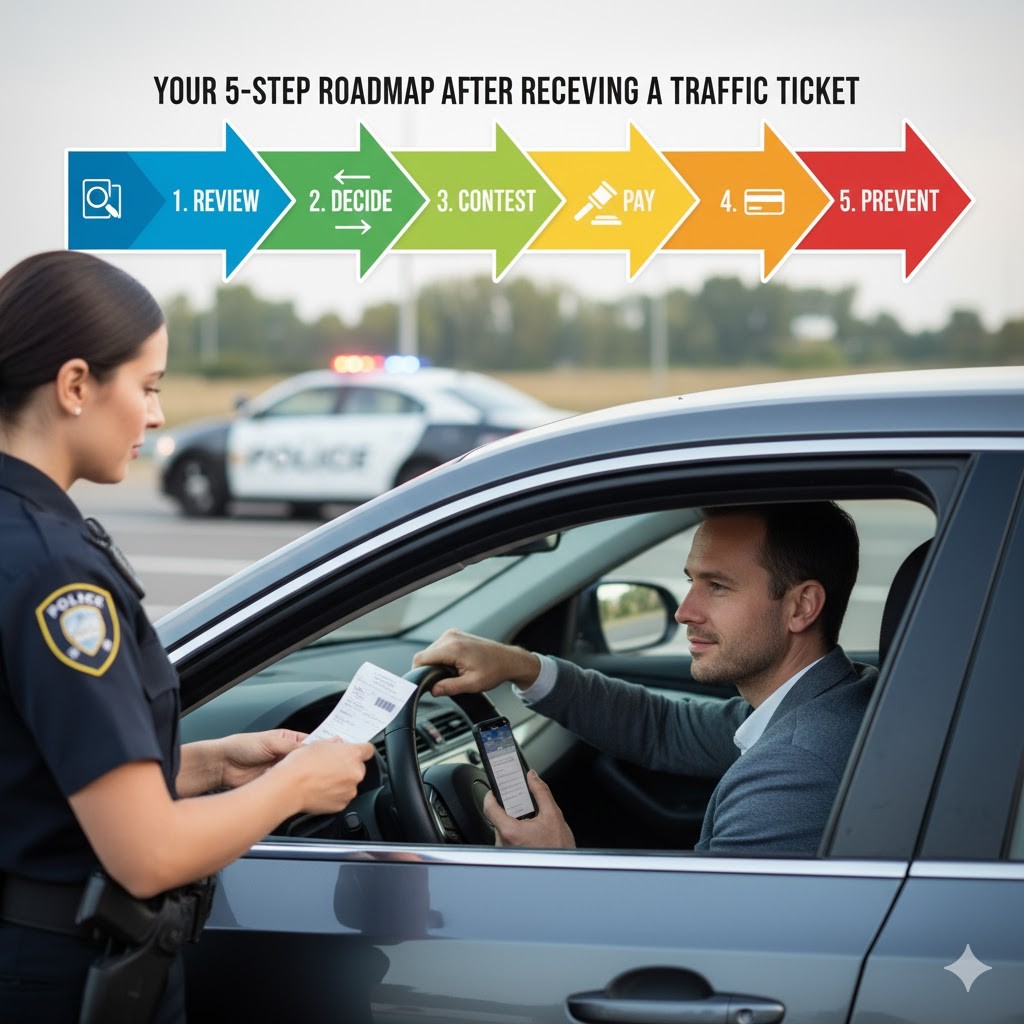

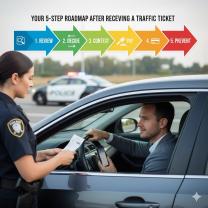
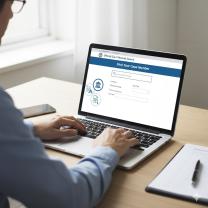





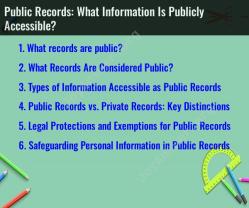

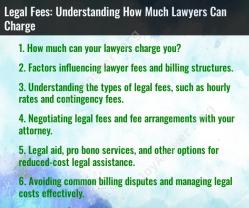

TrafficSchoolGrad
on October 09, 2025The section on how **traffic tickets affect your driving record and insurance** is essential reading. It's a great reminder that simply paying the fine has serious, long-term costs. Always check if traffic school is an option!